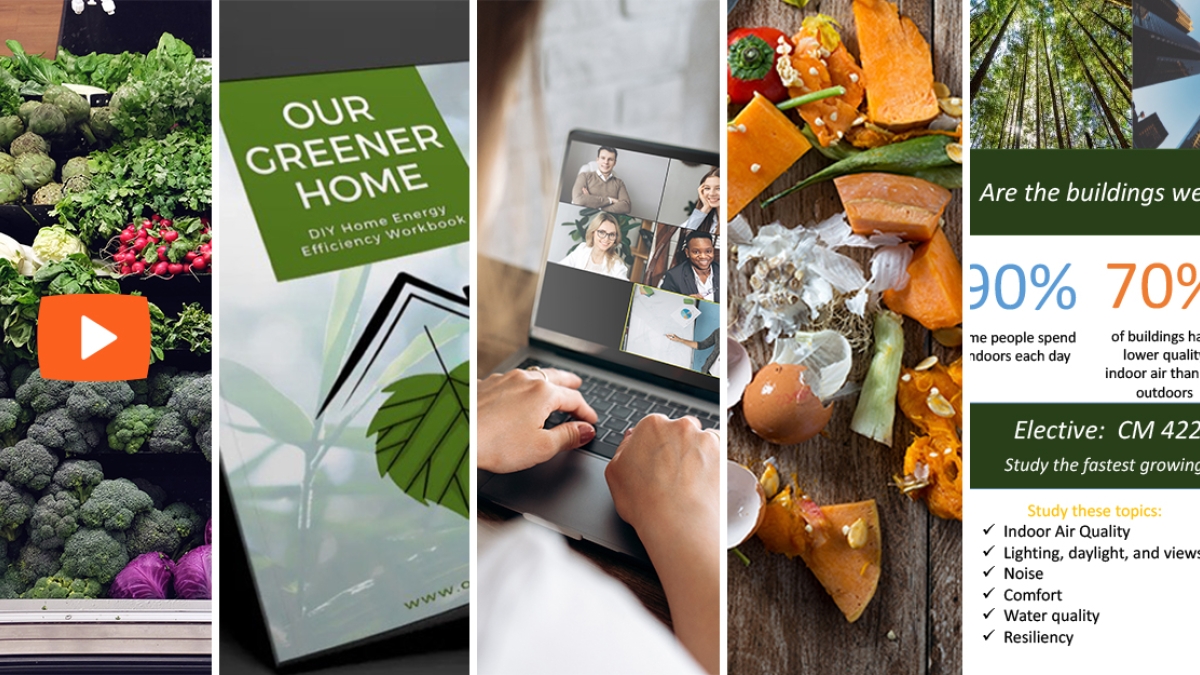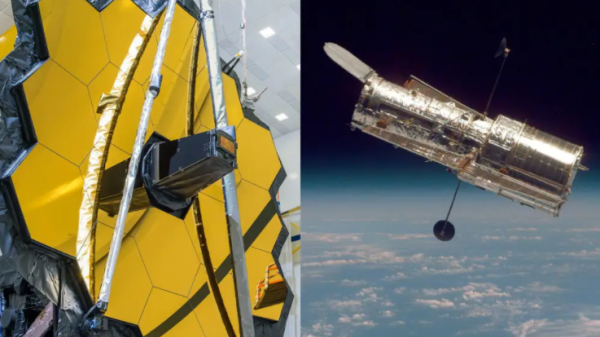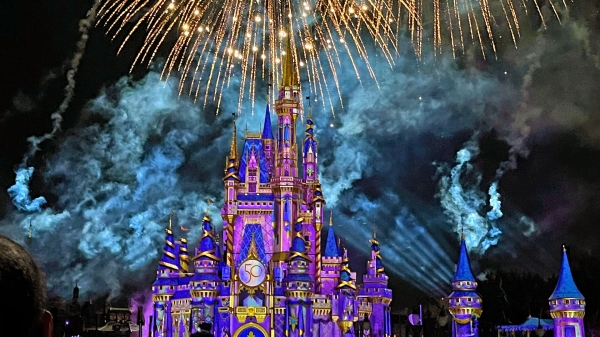A step in the 'write' direction for sustainability
ASU online course empowers students to give their passion projects a voice

Students produced a variety of projects within the course Communicating about Sustainability.
College courses often push students to think about the world’s grand challenges, but they do not always address the need to communicate solutions effectively. By asking students to reimagine the ways in which they communicate the world’s most pressing sustainability challenges, Gillian Clark is trying to bring audiences into focus.
Clark is an adjunct faculty member in the School of Sustainability at Arizona State University. Drawing on her background as an English teacher and instructional designer for the school, she created a course called SOS 494/598: Communicating about Sustainability. Her goal is to increase writing abilities among students in the program.
“This is an absolutely necessary skill,” she said. “Nobody is going to believe in you or support your cause if you don't know how to write and communicate well.”
The online course draws on ASU’s rich history of innovation in remote learning, which includes over 200 online degree programs and countless additional course offerings. This established expertise helped the university transition 70,000 students to remote learning during the coronavirus pandemic.
Communicating about Sustainability incorporates instructional videos on persuasive language, rhetoric, grammar and audience engagement with interactional components such as discussion boards, peer review sessions and office hours.
“Communication spans a really wide variety of forms, especially in the digital age. There’s oral communication, written communication, social media, art renderings, music and much more,” Clark said. “I was told by most of my students that they felt really stretched by the breadth of skills we were able to cover in the course. But, the wonderful thing was we got this huge variety throughout the class and they learned a lot.”
In the course, an interdisciplinary group of students from around the world were asked to produce one traditional written piece and one creative media piece surrounding a sustainability mission they are passionate about.
“I wanted students to walk away from this course with something meaningful to them,” Clark said. “As a bonus, they will know how to write better as a result of taking on their independent study and pursuing it as a sort of passion project.”
Building for health
Joe Cleary, an online doctoral student in construction management, took the course to strengthen his digital communication skills. As an assistant professor at California Polytechnic State University in San Luis Obispo, Cleary saw room to learn and implement new communication tactics in the classes he teaches on the sustainability and health of our built environment — a principle called green building.
“In this field, we’ve been so focused on the impact that buildings have on the environment and how green they are. There hasn’t been enough of a focus on creating healthy environments for the human beings inside of those buildings,” Cleary said. “This will shift in the near future.”
Cleary’s research into the creation of buildings that promote the health and wellness of occupants led him to construct a course where students can engage with these concepts. As a part of the ASU class, Cleary created a flyer to advertise his future course to students at ASU and Cal Poly SLO.
Cleary believes the Communicating about Sustainability class provided a vehicle for creating content that will advance the green building movement.
“It’s very difficult to create solutions that are a silver bullet to fix every problem, and so in our time we’re trying to move the needle forward as far as we can,” Cleary said. “Both the paper and flyers I created provide an opportunity to disseminate this information to future builders.”
Species-saving storytelling
Jordan Leiter, a recent online graduate from the School of Sustainability, also wants to inspire future generations, but she’s aiming even younger. She decided to apply her passion for animal conservation to write a children’s book about her favorite animal.
The book follows the life of Penny the Pangolin, a scaly anteater-like mammal found in southern Africa and Asia. Leiter wanted kids to know about pangolins because of their vital role as a keystone species in native ecosystems.
“I wanted to explain ecosystem relationships and habitat niches in a really simplified way, so that 8- to 12-year-olds could understand,” Leiter said. “Penny the Pangolin leaves, and things in her habitat start to spiral out of control. If you lose your keystone species, the habitat can change dramatically and even fall apart.”
Leiter hopes that the book can serve as a fun but impactful way to get kids thinking about the effects that human and environmental changes can have on ecosystems.
“As humans, we tend to dissect things and analyze the causes and effects to just one species or one plant,” Leiter said. “You can’t do that. The environment has a domino effect and each event has a cascading effect on the ecosystem.”
Her research article and children’s book about pangolins will be published by the Audubon Society.
Energy efficiency toolkit
For Emma Massick, a recent graduate of the online Master of Sustainability Leadership program, expanding her communication skills was vital to expanding the impact of her work — creating an energy-efficiency toolkit called Our Greener Home for community members to check out at local libraries in Washington County, Tennessee.
Massick feels that a shift toward a “green” mindset is necessary in her community because of the lack of knowledge about energy efficiency. Tennessee is among the top 15 states for energy consumption per capita and among the top five for residential consumption, despite the average price for electricity being below the national average.
The toolkit she created includes energy-efficient light bulbs, an energy meter reader, low-flow shower heads, faucet aerators and other tools that people can install in their homes to help them use energy and water more wisely. As a part of the course, Massick developed a workbook that accompanies the tools to educate the community about energy savings.
The Communicating about Sustainability course offered Emma the skill-building she was seeking to be able to speak about her project with larger audiences, develop an effective webpage and create a video pitch.
“It would be really nice to have enough reach to get several toolkits out and expand to many libraries,” Massick said. “I want to see people get excited about energy savings the way my peers and I do. To be able to spread this knowledge and excitement really will make a difference in this community.”
Conserving community
Though students in the course had different interests and were located across several countries, they report feeling extremely connected, supported and engaged in their online learning community.
“Seeing what the other students were working on and seeing the progress they were making made it feel like we were on the same path, in it together,” Cleary said. “It provided a means of interaction and really helped me feel more involved in the virtual environment.”
“This class really tried to make the experience interactive in a meaningful way,” Leiter said. “People created discussion boards about topics separate from the class which was really cool. Especially because of the pandemic, we were able to have an outlet to talk about other sustainability issues in those spaces.”
As a seasoned online learner, obtaining all of her higher education online, Massick sees unique opportunities to create community in online spaces during this time.
“It’s nice to have the background to help others get into a more comfortable space in the online platform,” Massick said. “Relationships can be formed through Zoom meetings and student social media groups can talk to each other, collaborate on assignments and even share graduate school memes. It’s a form of community that I wouldn't have had otherwise and it will get easier as it becomes more common.”
As the instructor for the course, Clark enjoyed seeing the community her class fostered around the issues challenging our world today.
“It was very exciting to see such a full range of projects. Communicating about passions in sustainability is compelling because whatever it is you’re trying to change, you’re enacting a major change in the world,” she said. “Their projects encompass a broader picture and we never know what kind of ripple effect that will have.”
The skills needed for crafting compelling narratives are vital in educating the next generation of university graduates, not only in sustainability but in all fields.
“Future leaders need to be able to write in a way that will reach their audience, whatever that happens to be. Effective communication is another tool in the arsenal. We need it to try and help us fight the battle we want to win,” Clark said.
“Nobody is born a good writer,” she added. “It is a skill that you develop over a lifetime. You just have to know what the tools are and you have to be willing to do it.”
This article was written by Maya Shrikant, a student writer for ASU Knowledge Enterprise pursuing degrees in innovation in society and biological sciences.
More Science and technology

ASU receives 3 awards for research critical to national security
Three researchers in the Ira A. Fulton Schools of Engineering at Arizona State University have received grant awards under the …

Celebrating 34 years of space discovery with NASA
This year, NASA's Hubble Space Telescope (HST) is celebrating its 34th anniversary of the world's first space-based optical…

Making magic happen: Engineering and designing theme parks
The themed entertainment industry is widespread and diverse, encompassing everything from theme parks to aquariums, zoos, water…